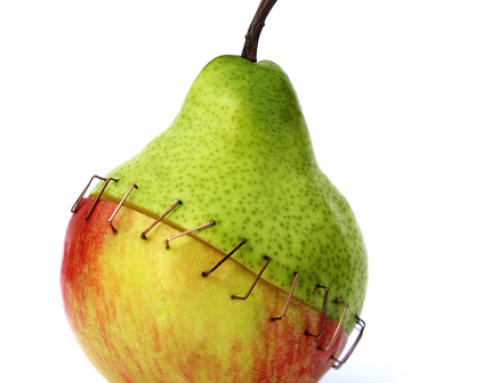If the power goes out it will take your internet access, so let’s go over this now. 
1) A closed refrigerator will keep food cold for about four hours.
2) A freezer packed with food will keep a safe temp for 48 hours. If it’s half full, you have 24 hours. (Grouping food together in the freezer will help it stay cold longer. Also, transferring refrigerated food into the freezer will help lengthen its life. Do it quickly, open doors have the opposite affect.)
3) Food is safe in either the fridge if the thermometer reads 40° F or below. The freezer should be 0° or below.
4) If you don’t have a thermometer in your freezer, check each item. If food still contains ice crystals or is at 40° F or below – you’ll need a food thermometer – it’s probably safe.
5) Discard all meat, poultry, fish, soft cheeses, milk, eggs, leftovers and deli items that have been in a refrigerator or freezer above 40° F for two hours or more. THE ONLY SAFE ITEMS ARE HARD CHEESES such as cheddar, Colby, Swiss, Parmesan, provolone and Romano and processed cheeses. SOFT CHEESES (blue, mozzarella, Munster, Neufchatel, queso blanco, queso fresco, Roquefort, brie, cottage, cream, edam, Monterey jack, ricotta) WILL BE DANGEROUS.
6) Throw out anything that’s come in contact with flood water – including food stored in cardboard containers, such as juice boxes or baby formula, and even items with non-waterproof caps, such as screw caps, crimped caps, pull tops and snap lids. The stuff inside is contaminated.
7) Canned food is probably safe, assuming the can is not damaged, swelling or overly rusted. But if it’s come in contact with flood water you have to wash and sanitize it first. Either boil for 2 minutes in clean water or put it in for 15 minutes in a freshly made bleaching solution. That’s about 1 tablespoon of unscented, liquid chlorine bleach per gallon of drinking water (or the cleanest, clearest water available.) Do the same for any metal pans, plates or cooking equipment that might touch your food.
8) Never taste food to determine whether it’s fresh. Never.
- Summer storms require food safety.
Source: United States Department of Agriculture.







Leave A Comment